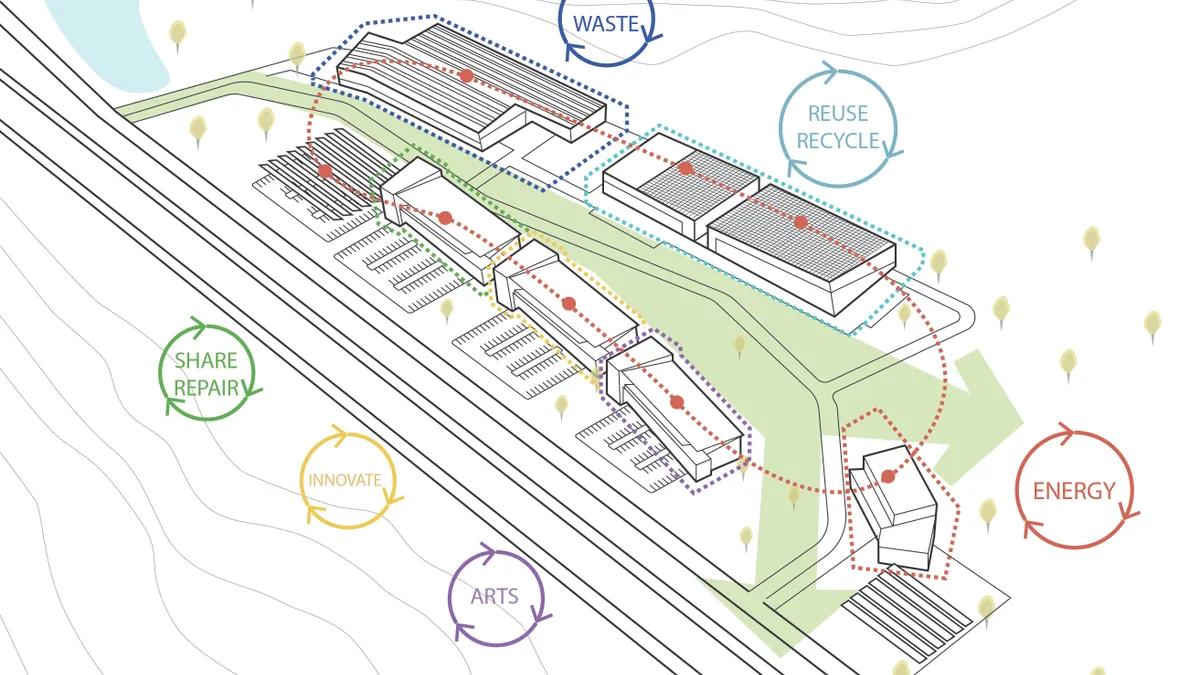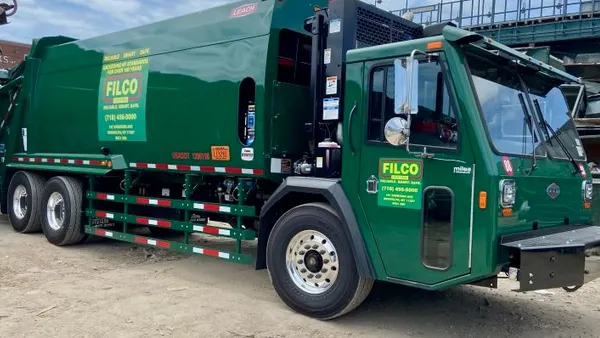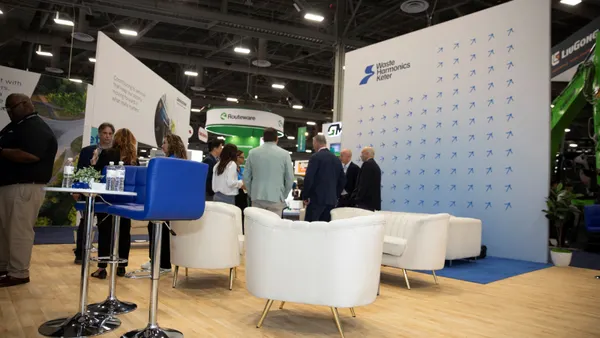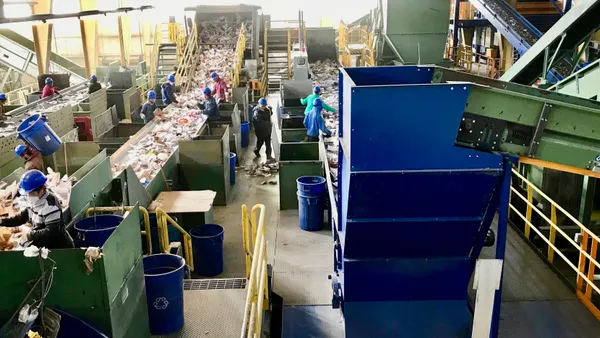Dive Brief:
- Officials in Dane County, Wisconsin, are planning a new 30-acre sustainable campus, a business park it envisions will bring together recycling, reuse and waste management activities under a long-term circular economy plan.
- The county’s Rodefelt Landfill has less than five years of capacity left, and it’s in the process of building a new landfill across the street. Yet officials say significant new waste diversion infrastructure is also needed, especially because the county’s population is rapidly growing.
- Dane County’s Department of Waste & Renewables has issued a Request for Information to solicit large-scale waste diversion ideas, such as chemical recycling initiatives or anaerobic digester facilities, among other options. It also calls for ideas for reuse and repair businesses, educational and art facilities, or recycling solutions for “problem materials” such as mattresses and mixed plastics.
Dive Insight:
Dane County already operates a range of waste management and diversion programs, but wants to consolidate operations to create a cohesive campus with more space for purpose-built facilities, new programs and better coordination across activities.
“We want to design this so that we're managing our waste differently in the future,” said John Welch, director of the Department of Waste & Renewables. “That means looking at what's left in the waste stream. What else can we divert, and how do we do it in an economically viable way?”
Dane County joins other U.S. localities that are pursuing sustainability business park projects as a way to formalize waste diversion projects while attracting new investments. Kent County, Michigan, is building a similar business park as part of its goal to divert 90% of county-generated waste by 2030. Waste-to-energy and other diversion options are part of the vision.
Phoenix’s planned Resource Innovation Campus aims to include a MRF, transfer station, compost facility and land leases for waste diversion businesses and research. Washington, D.C., added a sustainability business park plan to its latest Zero Waste plan, which envisions MRF, anaerobic digestion and community reuse elements.
Dane County operates a household hazardous waste facility, part of a public-private partnership, which also serves as an electronics and appliance recycling facility. There’s also a construction and demolition MRF, built by the county and operated by a private entity, that processes over 60,000 tons of C&D material a year.
In 2019, the county built a renewable natural gas plant at its landfill, which it owns and operates. Last year, Dane County launched a food waste collection program. Residential recycling is handled by the municipalities.
The department expects to begin work on the new landfill in 2026, and could start building co-located campus projects in 2027 or 2028. The county purchased the land from the city of Madison.
Deputy director Roxanne Wienkes said the county is “looking at all available options” for projects that can fit with the county’s existing efforts to divert more waste, create jobs or generate materials that can be resold, such as recycled commodities or energy. A larger campus will give projects more space for logistics and storage, which could help launch new projects such as mattress recycling or new drop-off programs for residents, she said.
It’s also looking to partner with institutions such as the University of Wisconsin at Madison, which is using grant funding to research a range of waste diversion projects.
The Department of Waste & Renewables operates as an enterprise fund, meaning it does not use tax dollars for its projects or operations. “We run a lot like a small business, where our customers pay us to manage their materials, and that has to cover our cost of operations,” Welch said.
As Dane County considers new businesses or projects for the sustainability campus, “it needs to be diverting additional waste. It needs to look at the larger environmental input, carbon footprint, aspects of it, but then it also needs to be financially viable.”
Dane County’s RFI process for the campus is open through March 21.
This story first appeared in the Waste Dive: Recycling newsletter. Sign up for the weekly emails here.










